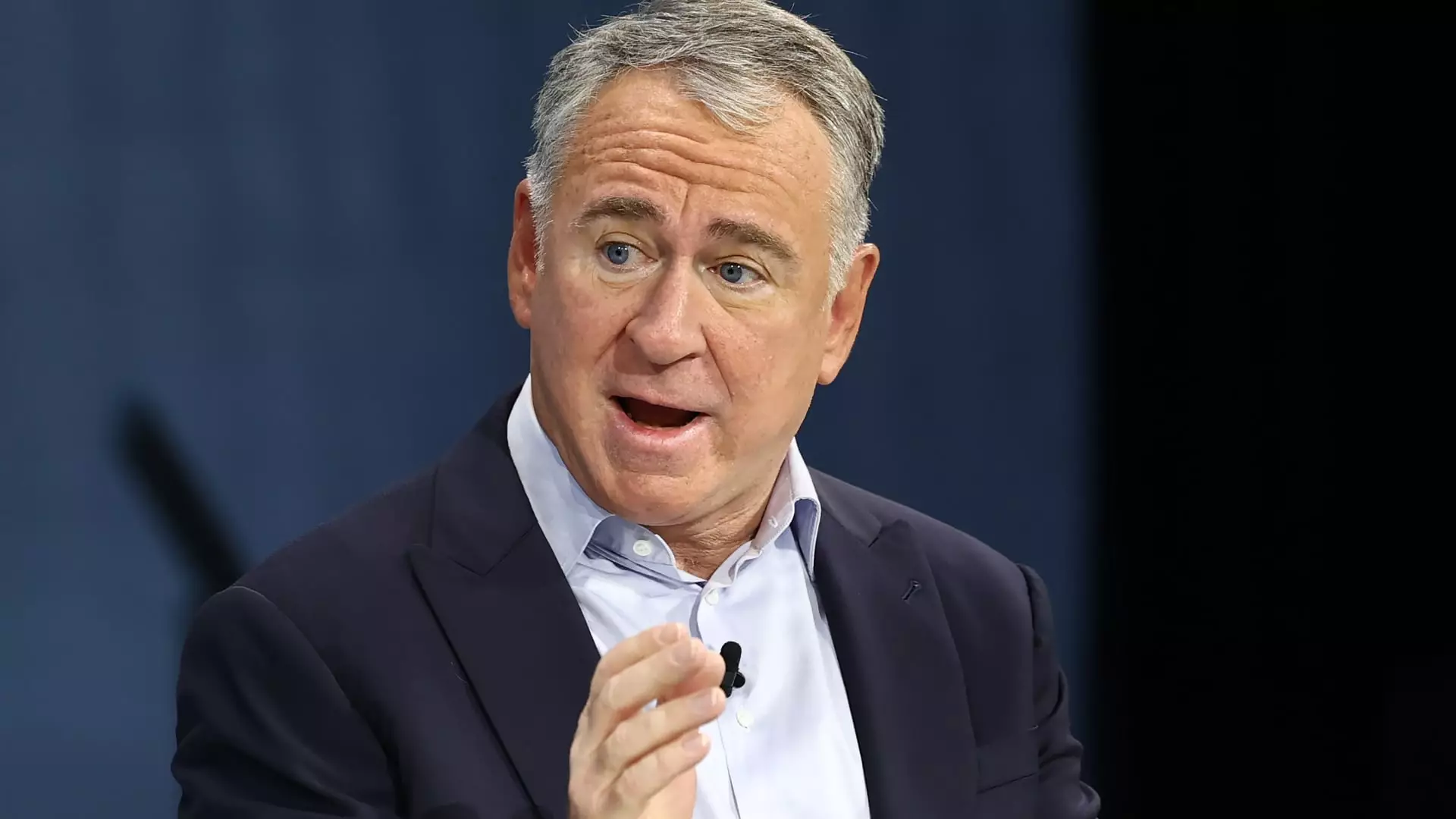At the recent UBS Financial Services Conference in Key Biscayne, Florida, Ken Griffin, the CEO of Citadel, issued a notable critique of the current U.S. trade policy under President Donald Trump. Griffin’s remarks pinpointed the detrimental effects of the president’s confrontational approach to international trade, suggesting that the rhetoric might have lasting repercussions on the perception of America as a reliable trading partner. This statement from Griffin, a former supporter of Trump and a significant contributor to Republican campaigns, marked a stark warning that resonates with many in the investment community.
The Consequences of Tariffs
The context of Griffin’s commentary comes on the heels of Trump’s decision to impose substantial tariffs on imported steel and aluminum, a move designed to protect American industries but one that complicates the landscape for global businesses. By levying a 25% tariff on certain imports and maintaining a 10% tax on all Chinese goods, Trump’s administration has initiated layers of trade barriers that Griffin argues can undermine long-term investment strategies. Such tariffs can create a ripple effect, creating uncertainty among executives and forcing a reevaluation of growth plans.
Griffin expressed that the hostile nature of the current tariffs could make planning nearly impossible for multinationals. He emphasized that strategic decisions often require long-term commitment—sometimes looking 15 to 20 years ahead—and that this environment of unpredictability could thwart the development of capital investments essential for future growth. Companies stake much on the stability and predictability of trade relations and making decisions in a climate marked by volatility can have dire financial consequences.
Moreover, Griffin introduced a critical socio-economic angle by warning about the potential for crony capitalism emerging as an unintended consequence of aggressive tariffs. The intertwining of corporate interests with governmental decisions can lead to a system where market competition is distorted, and innovation stifled. This issue is particularly salient as it could entrench a culture that favors those with political connections over those who innovate and compete based on quality and merit.
In his address, Griffin underscored the need for a more sophisticated and deliberative trade strategy. Instead of aggressive tactics that could alienate traditional allies and partners, he argues for a stance that emphasizes collaboration and mutual benefit. As the global economy becomes increasingly interconnected, the art of negotiation must pivot away from bombast to a style focused on partnership. Effective trade policies require dialogue, trust, and a collective vision that promotes stability and growth, which Griffin believes is currently lacking.
As industry leaders and policymakers reflect on Griffin’s stark warnings, the implications of Trump’s trade policies will undoubtedly be a pivotal point of discussion. The business community seeks a return to reliable and constructive engagement that facilitates growth rather than fosters divisions. The case Griffin presents serves as a crucial call for reevaluation, reminding us that economic strategies grounded in cooperation rather than conflict could hold the key to sustainable success in an increasingly complex global market.

